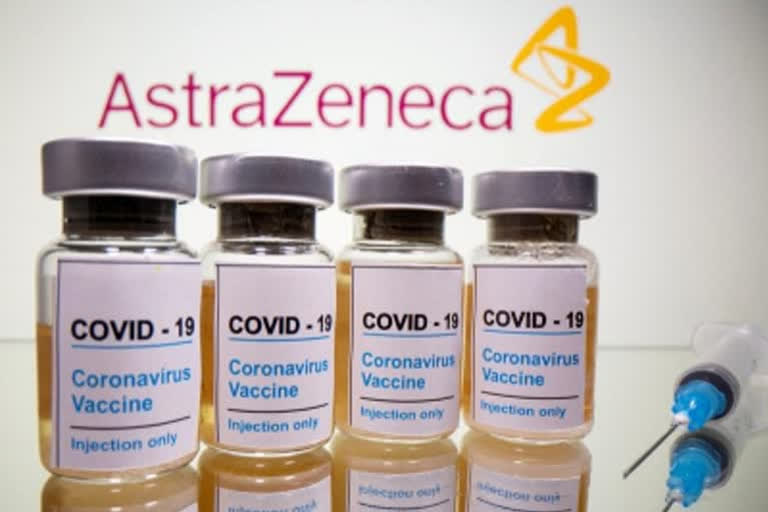Berlin: Germany, France, Italy and Spain became the latest countries Monday to suspend use of AstraZeneca's COVID-19 vaccine over reports of dangerous blood clots in some recipients, though the company and European regulators have said there is no evidence the shot is to blame.
AstraZeneca's is just one of three vaccines in use on the continent. But the cascading number of nations raising the alarm amounts to another setback for the European Union's vaccination drive, which has been plagued by shortages and other hurdles and is lagging well behind the campaigns in Britain and the U.S.
The EU drug regulatory agency called a meeting for Thursday to review experts' findings on the AstraZeneca vaccine and decide whether action needs to be taken.
The furor comes as much of Europe is tightening restrictions on schools and businesses amid surging cases of COVID-19.
Germany's health minister said the decision to suspend AstraZeneca shots was taken on the advice of the country's vaccine regulator, the Paul Ehrlich Institute, which called for further investigation into seven cases of clots in the brains of people who had been vaccinated.
“Today's decision is a purely precautionary measure,” Jens Spahn said.
French President Emmanuel Macron said his country will likewise suspend shots until at least Tuesday afternoon. Italy's drug regulator announced a temporary ban, less than 24 hours after saying the "alarm” over the vaccine “wasn't justified.” And Spain said it will stop using the vaccine for two weeks while experts review its safety.
AstraZeneca said there have been 37 reports of blood clots out of more than 17 million people vaccinated in the 27-country European Union and Britain. The drugmaker said there is no evidence the vaccine carries an increased risk of clots.
Also read:Netherlands suspends use of AstraZeneca vaccine amid blood clotting concerns
In fact, it said the incidence of clots is much lower than would be expected to occur naturally in a general population of this size and is similar to that of other licensed COVID-19 vaccines.
The World Health Organization and the EU's European Medicines Agency have also said that the data does not suggest the vaccine caused the clots and that people should continue to be immunized.
“Many thousands of people develop blood clots annually in the EU for different reasons,” the European Medicines Agency said. The incidence in vaccinated people "seems not to be higher than that seen in the general population.” The agency said that while the investigation is going on, “the benefits of the AstraZeneca vaccine in preventing COVID-19, with its associated risk of hospitalization and death, outweigh the risks of side effects.”
Blood clots can travel through the body and cause heart attacks, strokes and deadly blockages in the lungs. AstraZeneca reported 15 cases of deep vein thrombosis, or a type of clot that often develops in the legs, and 22 instances of pulmonary embolisms, or clots in the lungs.
The AstraZeneca shot has become a key tool in European countries' efforts to boost their sluggish vaccine rollouts. It is also pillar of a U.N.-backed project known as COVAX that aims to get COVID-19 vaccines to poorer countries.
Pfizer's and Moderna's vaccines are also used on the European continent, and Johnson & Johnson's one-shot vaccine has been authorized but not yet delivered.
